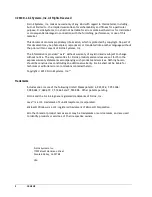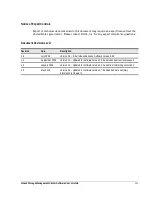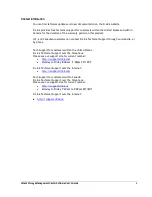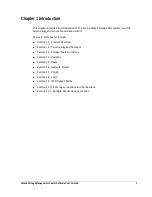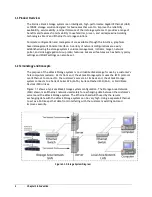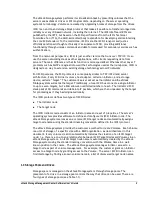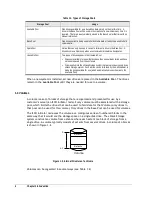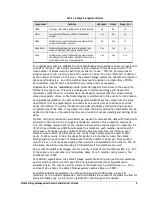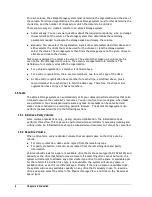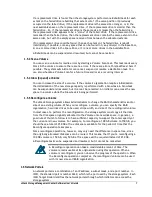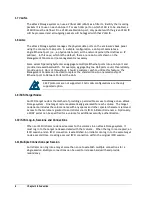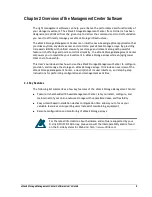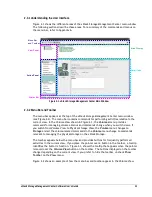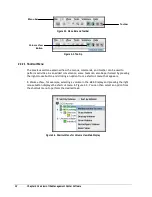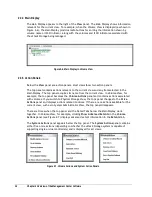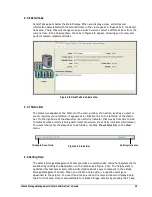
2
Chapter 1 Introduction
1.1 Product Overview
The D-Link xStack Storage system is an intelligent, high-performance Gigabit Ethernet (GbE)
or 10GbE storage solution designed for businesses that want to improve the reliability,
availability, serviceability, and performance of their storage systems. It provides a range of
benefits and features from its ability to use familiar, proven, and widespread networking
technologies like IP and Ethernet for storage solutions.
Complete configuration and management are available through the intuitive, graphical-
based Management Console interface. A variety of network configurations are easily
established using the storage system’s volume management, initiator, target, network
portal, and Link Aggregation Group (LAG) features. Advanced features such as battery policy
settings and SNMP settings can also be set.
1.2 Terminology and Concepts
The purpose of the xStack Storage system is to virtualize disk storage for use by a customer’s
host computers (servers). At its front end, the xStack Storage system uses the iSCSI protocol
over Ethernet to connect to the customer’s servers. At its back end, the xStack Storage
system connects to a bank of Serial ATA (SATA), Serial-attached SCSI (SAS), or Solid State
Devices (SSD) drives.
Figure 1-1 shows a typical xStack Storage system configuration. The Storage Area Network
(SAN) shown is an Ethernet network used solely for exchanging data between the customer's
servers and the xStack Storage system. The Ethernet bandwidth used by the servers
exchanging data with the xStack Storage system can be very high. Using a separate Ethernet
to act as a SAN keeps that data from interfering with the customer's existing LAN and
improves security.
Figure 1-1. Storage System Diagram
Summary of Contents for DSN-5210-10 - xStack Storage Area Network Array Hard Drive
Page 9: ...xStack Storage Management Center Software User s Guide ix This Page Left Intentionally Blank ...
Page 10: ......
Page 90: ...80 Chapter 5 Managing Physical Storage This Page Left Intentionally Blank ...
Page 110: ...100 Chapter 6 System Administration Figure 6 18 Advanced Settings Tab ...
Page 132: ...122 Chapter 8 Performing System Actions THIS PAGE LEFT INTENTIONALLY BLANK ...
Page 136: ...126 Chapter 9 Best Practices This Page Left Intentionally Blank ...
Page 144: ...134 Appendix A Menu Summary THIS PAGE LEFT INTENTIONALLY BLANK ...
Page 148: ...138 Appendix B Factory Default Settings THIS PAGE LEFT INTENTIONALLY BLANK ...


